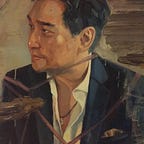The Most Important Thing to Remember About Noynoy Aquino’s Presidency
There’s been a lot said about President Benigno “Noynoy” Aquino III since he passed away last Thursday; most of it — thankfully — positive, despite the toxic political climate we find ourselves in these days. Even his successor, President Rodrigo Duterte, whose vast social media network has spent years trolling Aquino and his Liberal Party, was uncharacteristically gracious in his remarks, even ordering flags to be flown at half mast as a sign of national mourning.
The Aquino family politely but firmly turned down the usual trappings offered to a former president: lying-in-state in Congress, and the state funeral. Instead, there was mass at his alma mater, Ateneo de Manila, and a motorcade to his final resting place beside his mother and father at a private cemetery. As his motorcade wound through Manila’s streets, people from all stations in life lined the streets to pay their respects, giving me some hope that the negative narrative created by six years of relentless attacks on Aquino, his allies and their legacy, can finally be rewritten.
It seems to have already begun.
Media, both social and traditional, are full of discussions about the Aquino presidency, the vast majority of which paint a positive picture. The assessments tend to recognize his decision to take our territorial dispute with China to the International Tribunal and the strong economic growth resulting from a surge in investment.
Those are all important, but to me the single most important thing he did for this country was not the investment grade credit rating or the improvement in our economic freedom rankings or any of those things that people talk about at Davos which really don’t mean shit to ordinary people.
It wasn’t defending ourselves against an increasingly aggressive China (although that is probably the second most important thing to me).
And it wasn’t the fact that he never ordered or encouraged the murder of 30,000 poor people under some imaginary war on drugs, because believe it or not that was unimaginable before Duterte came along.
When Aquino became president in 2010, the country’s poverty incidence was 26.3%. When he left office in 2016, that poverty index was down to 21.6%. In the real world, that translates to millions of families lifted out of extreme poverty and ready to dream of a better future. It wasn’t a single action or policy that did it but the combination of policy, governance, and political will. Policies aimed at protecting and uplifting the poor, like the massive expansion of the conditional cash transfer program, the expansion of coverage of Philhealth medical insurance, the passage of the reproductive health law, which provided universal access to contraception, and improving the quality and expanding access to public education. All those things that never make it to the headlines (except when they became politically controversial) but are essential for a country’s long term success. It’s this kind of growth that paved the way for the economic and social miracles of China, Korea, and Singapore.
But it’s not just about material comfort. Poverty is dehumanizing and degrading and freeing people from that is the most important thing any developing country leader can do. Because when your everyday life isn’t an existential struggle anymore, you can begin to aspire to be better for yourself and your children and your community. Because when people can reclaim their dignity, its easier for them to be compassionate, civil, and tolerant. And for a country like mine, who has been exploited and oppressed, first by foreign invaders and, more tragically, by its own elites, that’s probably the most important thing Aquino left behind. When he stepped down from office in 2016, he acknowledged that the work was far from over and that others had to finish the job. But he gave it his all and left it all on the field. It’s now up to us to carry on.
